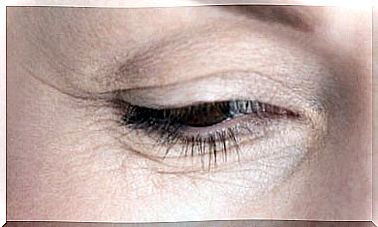The Morbid Fear Of Cancer: Carcinophobia
Fear of cancer is logical, but you shouldn’t worry excessively or display avoidant or obsessive behavior. Whoever has the feeling or the suspicion that they might get cancer or already has it, could suffer from carcinophobia. If these thoughts are limiting your life, then it is time to see a psychologist.

Cancer is still a very serious and often fatal disease, so it is normal to be afraid of cancer . We know that treating a tumor is usually aggressive and complicated, and it can also have serious side effects.
But when the fear of cancer becomes irrational and obsessive, there is a problem that can be very limiting and greatly reduce the quality of life. We speak of a phobia, a pathological fear that leads to irrational caution and inexplicable behaviors that can have very negative effects in the life of the person concerned.
The exaggerated fear of cancer produces unnecessary emotional distress. Every physical symptom is interpreted as a possible sign of a tumor, everything is a threat, even if there is no reason for it. This condition has a very negative effect on mental and physical health.
Morbid fear of cancer

The pathological and irrational fear of cancer is also known as carcinophobia. The term “irrational” does not mean that there are no reasons or possible risks for cancer, but rather that the fear is extremely exaggerated and is not based on objective facts.
People who show exaggerated fear of cancer behave similarly to any other phobia. For example, you avoid sun exposure because the radiation could cause cancer; or they cut out certain foods because they heard that they could be carcinogenic.
Carcinophobia leads to intense nervousness and constant stress, because the risks are greatly exaggerated. Affected people sense danger everywhere, much as is the case with a hypochondriac. Every slight complaint is viewed as a catastrophe and attributed to a possible cancer, even if there is no reason for it.
Fear of cancer: avoidant behavior
Some people with carcinophobia adopt avoidant behaviors, which come in two different ways: Some avoid all things or situations that they imagine or actually could cause cancer. It is an escape behavior.
In addition, these people also develop excessive preventive measures. They pay extreme attention to their diet, the use of cell phones, etc. Some people with escape behavior even believe that contact with a person suffering from cancer is a danger.
The other variant of avoidant behavior is when the person refuses to go to the doctor out of sheer fear of cancer. People often believe they already have cancer and do not want to be examined because they fear the confirmation of this self-diagnosis. They prefer to live with doubt, nervousness and fear.
Carcinophobia or the obsessive fear of cancer

Obsessive anxiety is typical of people with carcinophobia. This can be expressed not only in avoidance, but can also lead to a pathological search for information on the topic of cancer.
Another consequence of this is that every slightest complaint leads to a doctor’s visit or lengthy research, as there is always an immediate suspicion of a tumor. Even the smallest sign could be a symptom of already having cancer. Those affected, however, interpret the information according to their own ideas.
If the doctor can’t find symptoms that could indicate cancer, they believe the expert was wrong. They then go to another doctor, or turn away from medicine in general. Affected people are constantly afraid, which becomes even worse with more and more information on the subject.
Myths and Truths About Cancer
We must remember that when we are born we slowly begin to die. Sooner or later life leads to death for these or other reasons. We have to accept this fact, even if it is often not easy.
However, it is also true that cancer is becoming increasingly common around the world. However, these data are controversial because they could also be interpreted in such a way that these diseases are now diagnosed earlier and in more people. The diagnosis has also become more visible, which doesn’t necessarily mean that there are actually more cases.
Cancer, as well as other serious diseases, can be prevented to a certain extent. But there is no way to prevent it completely. In most cases, several factors combined will lead to the development of the disease, and not all of them can be controlled.
However, experts point out that a healthy lifestyle, both physically and mentally, can help reduce the risk of illness.
If you think you have carcinophobia, you should definitely seek help from a psychologist.









